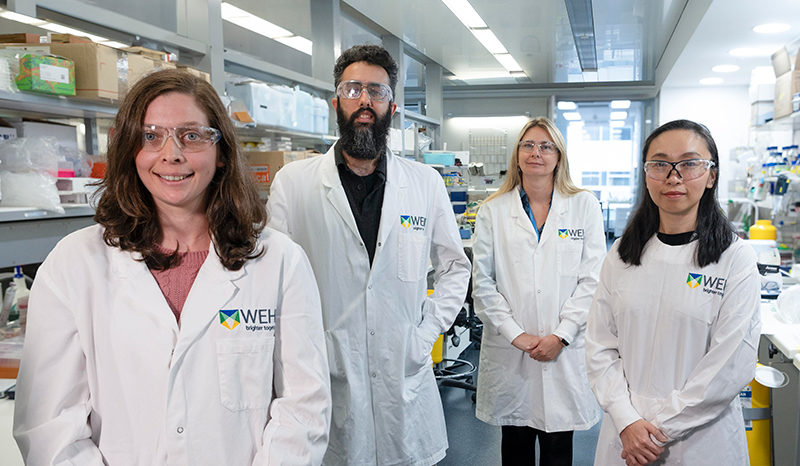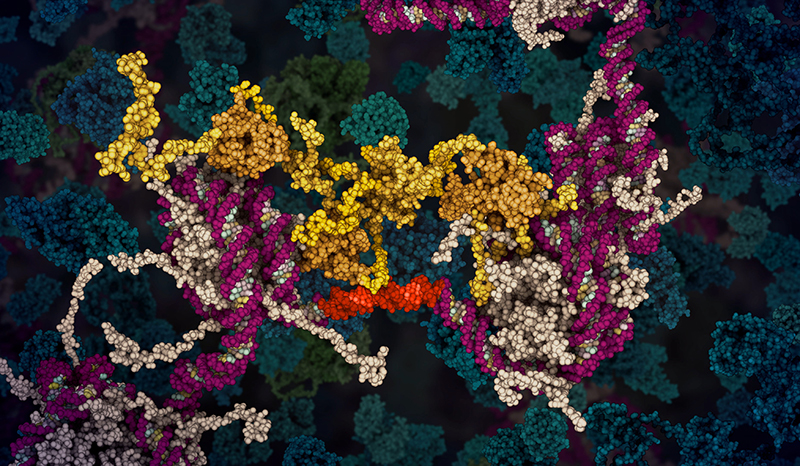Bornkamm GW, Kelly GL, Ross AM. Burkitt’s Lymphoma and Early B Cell Transformation as Paradigms of How Epstein-Barr Virus Overcomes Apoptosis and Ferroptosis. Current Topics in Microbiology and Immunology. 2025;:10.1007/82_2025_301
Fischer KC, Litalien V, Diepstraten ST, Jahja M, Brown FC, Kelly GL, Wei AH, Cory S. MNT: a new target for AML. Blood Neoplasia. 2025;2(4):10.1016/j.bneo.2025.100149
Diepstraten S, La Marca J, Yuan Y, Young S, Chang C, Whelan L, Ross A, Fischer K, Litalien V, Brown F, Roberts A, Wei A, Strasser A, Kelly G. 3151 – PUTTING THE STING BACK INTO THERAPY FOR P53 MUTANT BLOOD CANCERS. Experimental Hematology. 2025;151:10.1016/j.exphem.2025.105092
La Marca J, Diepstraten S, Jin W, Deng Y, Potts M, Heidersbach A, Lelliott E, Koenig C, Brown F, Chang C, Dorighi K, Kueh A, Tai L, Whelan L, Kelly G, Fortin J-P, Haley B, Herold M. 3107 – ADVANCED CRISPR KNOCKOUT AND ACTIVATION MOUSE MODELS AS TOOLS FOR INVESTIGATING HEMATOLOGY AND HEMATOLOGICAL MALIGNANCIES. Experimental Hematology. 2025;151:10.1016/j.exphem.2025.105048
Potts MA, Mizutani S, Deng Y, Vaidyanathan S, Ting KE, Giner G, Sridhar S, Shenoy G, Liao Y, Diepstraten ST, Kueh AJ, Pal M, Healey G, Tai L, Wang Z, König C, Kaloni D, Whelan L, Milevskiy MJG, Coughlan HD, Pomilio G, Wei AH, Visvader JE, Papenfuss AT, Wilcox S, Jeyasekharan AD, Shi W, Lelliott EJ, Kelly GL, Brown KK, Strasser A, Herold MJ. Genome-wide in vivo CRISPR screens identify GATOR1 complex as a tumor suppressor in Myc-driven lymphoma. Nature Communications. 2025;16(1):10.1038/s41467-025-62615-y
Tee A, Kueh AJ, Gibson L, Malelang S, Herold MJ, Kelly G, Strasser A, Brinkmann K. Abstract 1379: Discovering the essential functions of MCL-1 in hematopoiesis using gene-swap mice. Cancer Research. 2025;85(8_Supplement_1):10.1158/1538-7445.am2025-1379
La Marca JE, Diepstraten ST, Kelly GL, Herold MJ. Awakening the Genome: CRISPR Activation to Unravel the Origin and Vulnerabilities of Cancer. Annual Review of Cancer Biology. 2025;9(1):10.1146/annurev-cancerbio-062624-104149
Thai AA, Young RJ, Bressel M, Kelly GL, Sejic N, Tsao SW, Trigos A, Rischin D, Solomon BJ. Characterizing and Targeting of BCL‐2 Family Members in Nasopharyngeal Carcinoma. Head & Neck. 2025;47(3):10.1002/hed.27973
Chen T, Ashwood LM, Kondrashova O, Strasser A, Kelly G, Sutherland KD. Breathing new insights into the role of mutant p53 in lung cancer. Oncogene. 2025;44(3):10.1038/s41388-024-03219-6
La Marca JE, Kelly GL, Strasser A, Diepstraten ST. Don’t fear the reaper: The role of regulated cell death in tumorigenesis and BH3-mimetics for cancer therapy. Developmental Cell. 2024;59(19):10.1016/j.devcel.2024.06.018






